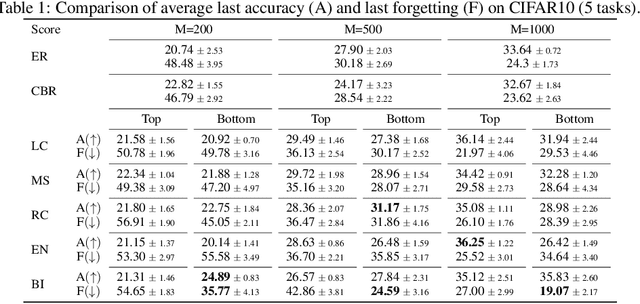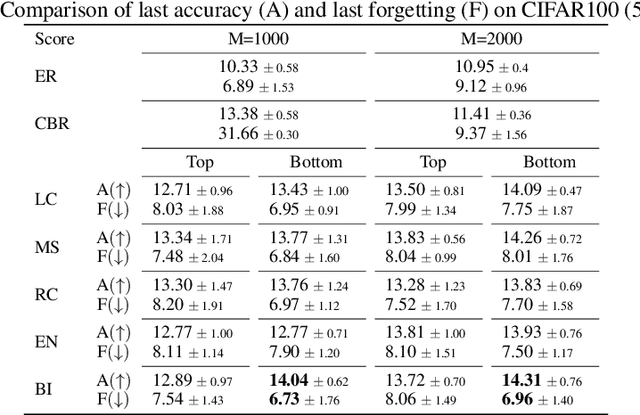Federated Continual Learning Goes Online: Leveraging Uncertainty for Modality-Agnostic Class-Incremental Learning
Paper and Code
May 29, 2024



Given the ability to model more realistic and dynamic problems, Federated Continual Learning (FCL) has been increasingly investigated recently. A well-known problem encountered in this setting is the so-called catastrophic forgetting, for which the learning model is inclined to focus on more recent tasks while forgetting the previously learned knowledge. The majority of the current approaches in FCL propose generative-based solutions to solve said problem. However, this setting requires multiple training epochs over the data, implying an offline setting where datasets are stored locally and remain unchanged over time. Furthermore, the proposed solutions are tailored for vision tasks solely. To overcome these limitations, we propose a new modality-agnostic approach to deal with the online scenario where new data arrive in streams of mini-batches that can only be processed once. To solve catastrophic forgetting, we propose an uncertainty-aware memory-based approach. In particular, we suggest using an estimator based on the Bregman Information (BI) to compute the model's variance at the sample level. Through measures of predictive uncertainty, we retrieve samples with specific characteristics, and - by retraining the model on such samples - we demonstrate the potential of this approach to reduce the forgetting effect in realistic settings.
 Add to Chrome
Add to Chrome Add to Firefox
Add to Firefox Add to Edge
Add to Edge